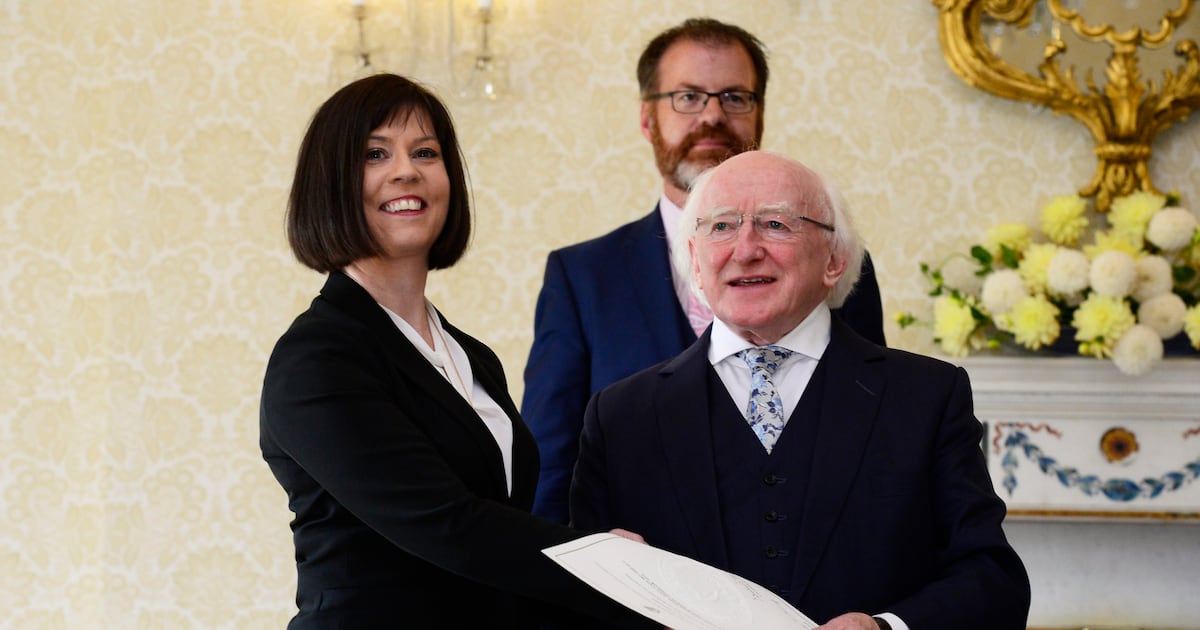Politics
European Court of Human Rights Faces Critical Challenges Ahead

The future of the European Court of Human Rights (ECHR) is under substantial scrutiny, according to Judge Úna Ní Raifeartaigh, Ireland’s representative on the court. Speaking at a recent event in Dublin, she emphasized that the court is facing a “serious test” amidst a complex political landscape that threatens its durability. Judge Ní Raifeartaigh asserted that the ECHR serves the citizens of the 46 Council of Europe member states, not their governments.
The judge highlighted several challenges confronting the court, including the increasing likelihood of bad faith actors attempting to undermine its authority. She noted, “Humans all over Europe are subjected to the kinds of ill-treatment that inspired the creation of the European Convention on Human Rights in the first place.” She referenced an upcoming case involving the tragic drowning of 29 individuals off the coast of Greece—a stark reminder of ongoing human rights violations.
Judge Ní Raifeartaigh characterized the ECHR as “a beacon of light” for those suffering from severe human rights abuses, including torture and arbitrary detention. She pointed out that while human rights may be perceived as “soft law” in Ireland, the court plays an essential role in addressing fundamental issues related to civil and political freedoms, such as the right to express opinions and engage in public protests.
The event also marked the 50th anniversary of the establishment of the Law Reform Commission, with significant contributions from notable figures including Chief Justice Donal O’Donnell and Attorney General Rossa Fanning. The Attorney General acknowledged the commission’s role in shaping many aspects of the Irish legal system, emphasizing the need for it to continue evolving alongside societal changes.
Reflecting on the impact of ECHR cases in Ireland, Judge Ní Raifeartaigh cited the case of Josie Airey, which resulted in the State providing access to free legal aid. She pointed out that this is just one example of how the court’s rulings can lead to significant legal reforms that enhance justice and equality.
Despite the ECHR’s commendable role, Judge Ní Raifeartaigh noted that skepticism exists regarding its effectiveness, particularly when judgments are ignored by member states. She recounted how victims of human rights abuses view the court as a “roadmap to the future” and a documented record of their suffering, even when its decisions lack enforcement.
The judge stressed the vital importance of individual petitions to the court, underscoring that it is fundamentally a court for the citizens rather than a tool for governments. With approximately 60,000 cases currently pending, the ECHR faces considerable challenges, including varying legal cultures and backgrounds among its judges.
Judge Ní Raifeartaigh expressed gratitude for Ireland’s support of the court, stating that such backing contributes not only to domestic rights protection but also to solidarity with citizens in other countries where such rights are not guaranteed.
As the ECHR navigates its future, the reflections shared during this anniversary event serve as a critical reminder of the ongoing need for vigilance and advocacy in the protection of human rights across Europe.
-

 Top Stories3 months ago
Top Stories3 months agoTributes Surge for 9-Year-Old Leon Briody After Cancer Battle
-

 Entertainment4 months ago
Entertainment4 months agoAimee Osbourne Joins Family for Emotional Tribute to Ozzy
-

 Politics4 months ago
Politics4 months agoDanny Healy-Rae Considers Complaint After Altercation with Garda
-

 Top Stories4 months ago
Top Stories4 months agoIreland Enjoys Summer Heat as Hurricane Erin Approaches Atlantic
-

 World5 months ago
World5 months agoHawaii Commemorates 80 Years Since Hiroshima Bombing with Ceremony
-

 Top Stories3 months ago
Top Stories3 months agoNewcastle West Woman Patricia Foley Found Safe After Urgent Search
-

 Top Stories5 months ago
Top Stories5 months agoFianna Fáil TDs Urgently Consider Maire Geoghegan-Quinn for Presidency
-

 World5 months ago
World5 months agoCouple Convicted of Murdering Two-Year-Old Grandson in Wales
-

 World5 months ago
World5 months agoGaza Aid Distribution Tragedy: 20 Killed Amid Ongoing Violence
-

 World5 months ago
World5 months agoAristocrat Constance Marten and Partner Convicted of Infant Murder
-

 Top Stories4 months ago
Top Stories4 months agoClimbing Errigal: A Must-Do Summer Adventure in Donegal
-

 Top Stories4 months ago
Top Stories4 months agoHike Donegal’s Errigal Mountain NOW for Unforgettable Summer Views









